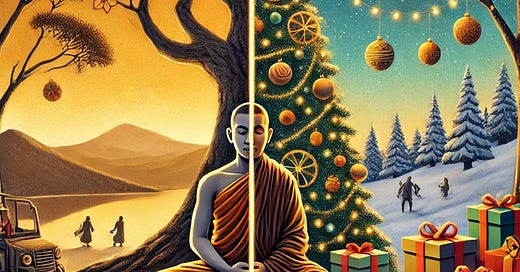As Buddhism continues to grow in the West, practitioners often encounter cultural traditions that challenge the authenticity of their practice. Among these, Christmas stands out as a particularly thorny issue. While some argue that it has become a secular or cultural holiday, its name and origins tell a different story.
The Etymology of “Christmas”
The very name Christmas reveals its deeply religious nature. The term derives from the Old English Cristesmæsse, first recorded around 1038. It combines two key components:
Christ: This is rooted in the Greek word Christos (Χριστός), meaning “the anointed one,” a title for Jesus as the central figure of Christian theology. Christos itself comes from the verb chrīein, meaning “to anoint.”
Mass: This term originates from the Latin missa, referring to the Eucharistic celebration in Christian liturgy. Missa likely derives from the Latin phrase Ite, missa est (“Go, the dismissal is made”), which concluded the ceremony and sent participants out into …
Keep reading with a 7-day free trial
Subscribe to The Gentle Law to keep reading this post and get 7 days of free access to the full post archives.




